







Hands-on training with technical equipment can be a challenge for facilitators but it's
critical for learning. There was a time when it only made financial sense to build a virtual
simulation for flight training. Now, the cost of virtual reality has decreased dramatically
and the benefits of immersive training that mimic the real-thing are numerous.
Power engineering, also called power systems engineering, is a subfield of electrical
engineering that deals with the generation, transmission, distribution, and utilization of
electric power, and the electrical apparatus connected to such systems. Power
engineering jobs are high in demand but training requires working with large physical
power systems like boiler rooms. Getting hands on training time in these facilities is
difficult and possibly dangerous for new engineers so virtual reality training simulations
make much more sense.
UP360 worked with a consortium of 7 Ontario colleges and universities, to develop the
Power Engineering Virtual Training Simulator. This tool gives students hands-on, lifelike
training in a risk free virtual environment.
Follow the steps to start up the boiler from cold using natural gas as its main fuel.
Follow the steps to start up the boiler from cold using No. 2 Fuel Oil as its main fuel.
Starting with the system full on and using No. 2 Fuel Oil as its main fuel, follow the steps to completely shut it down.
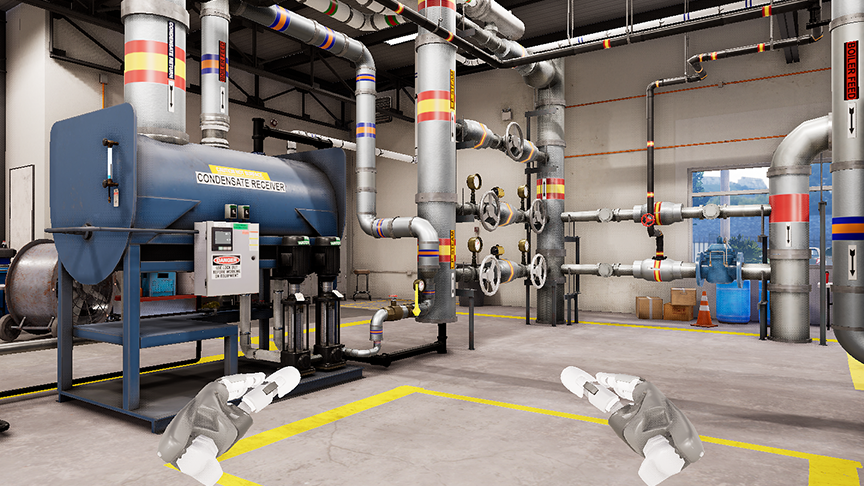
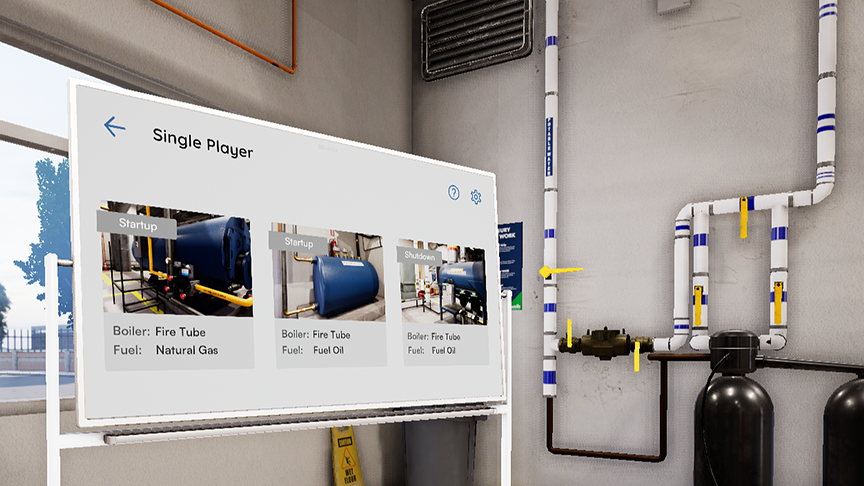
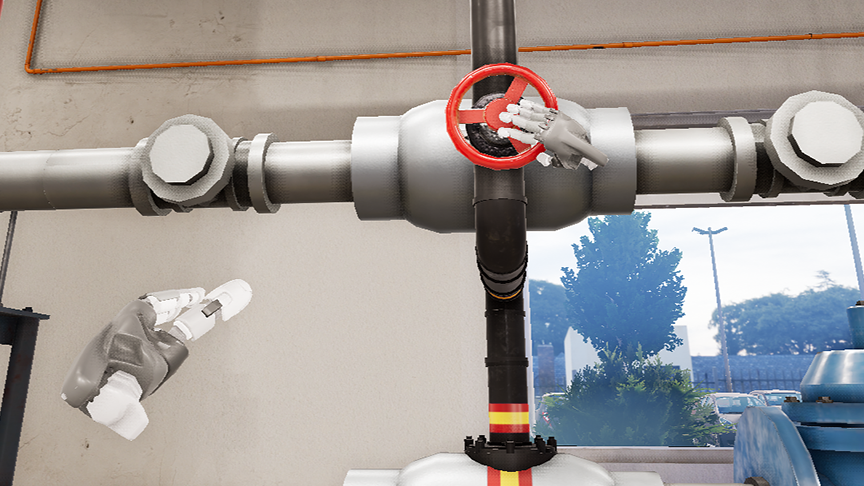
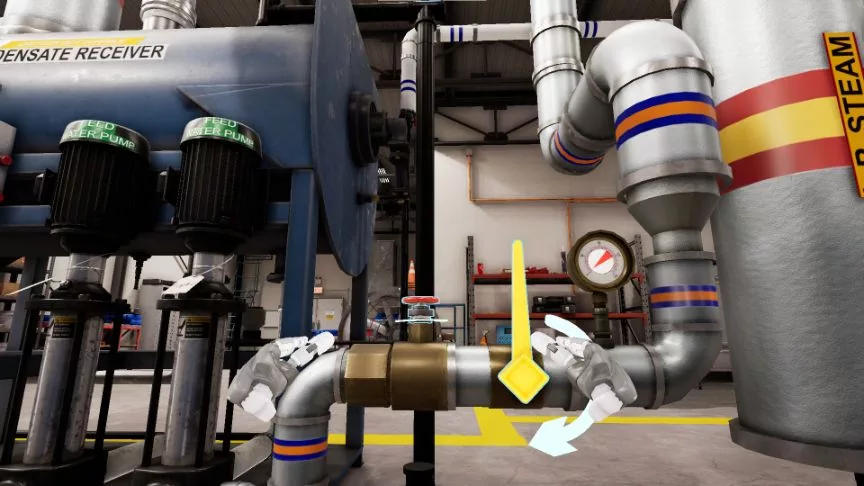
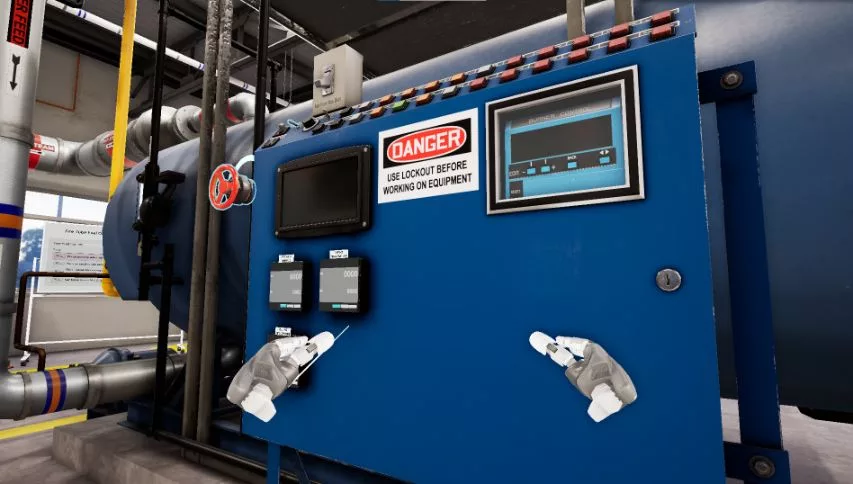
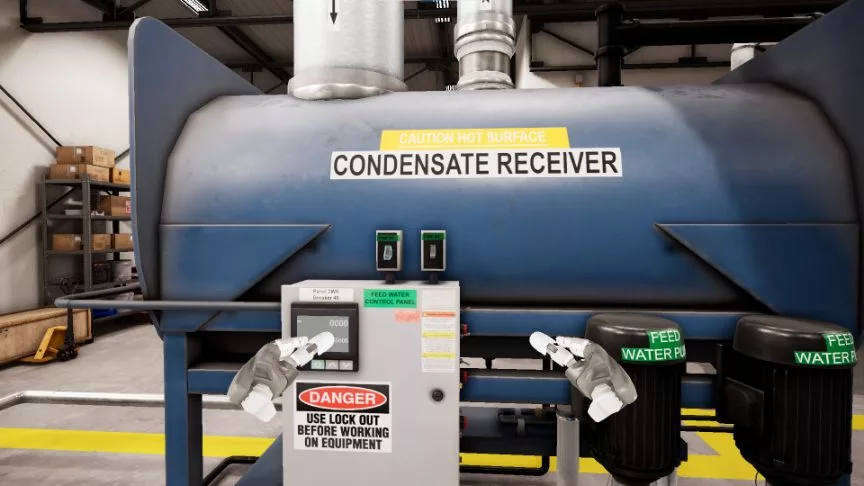
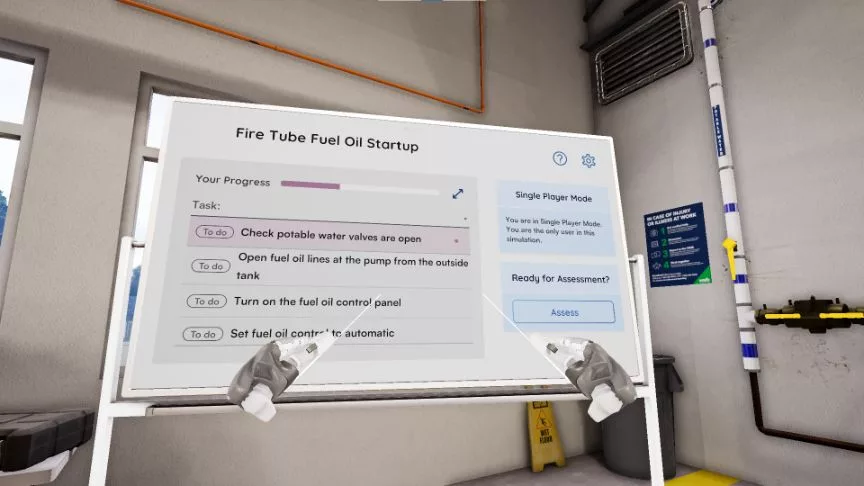
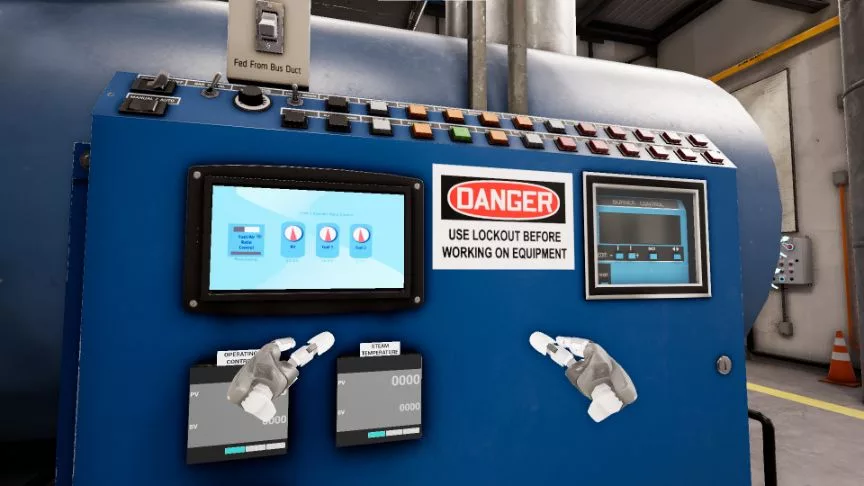
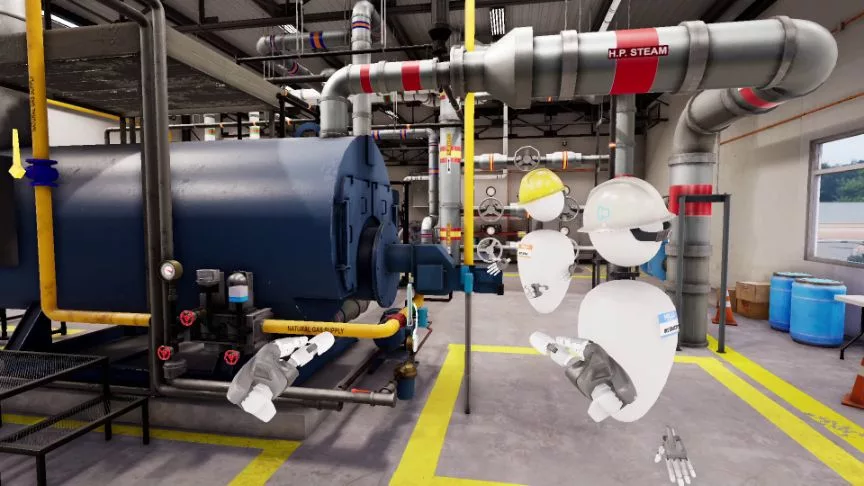
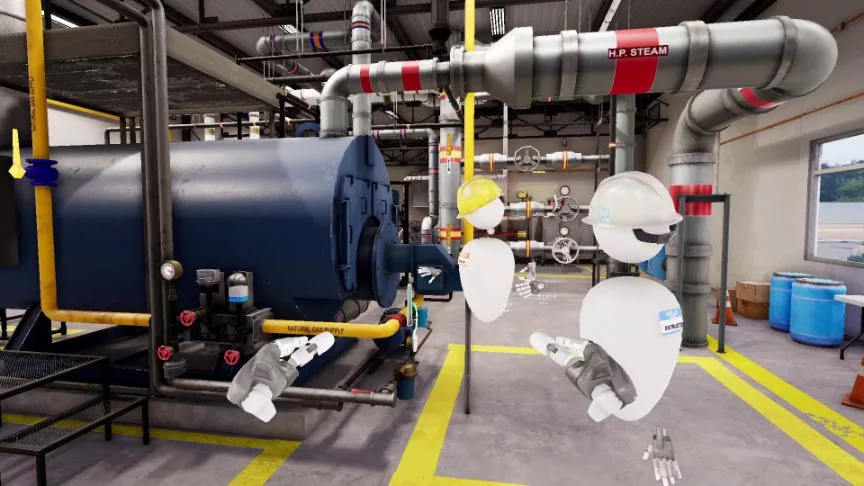
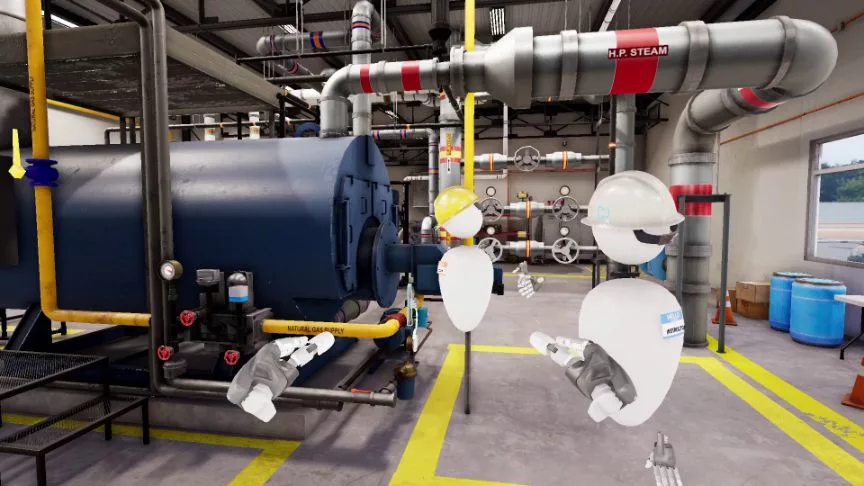
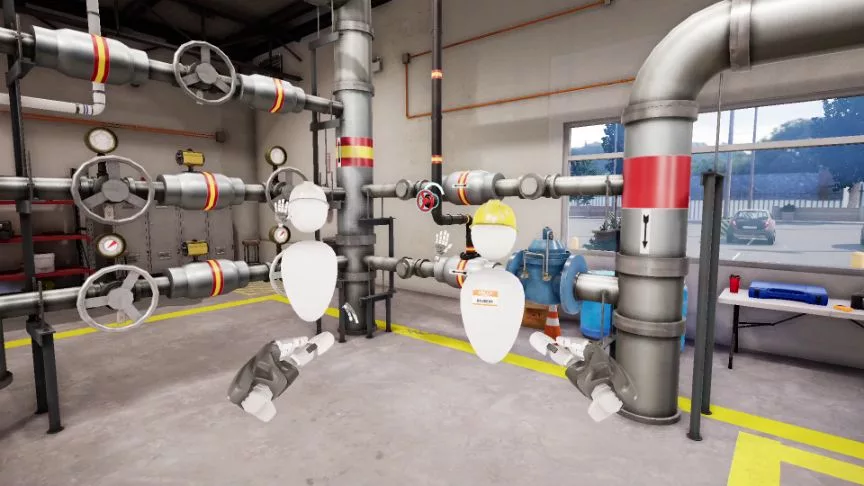
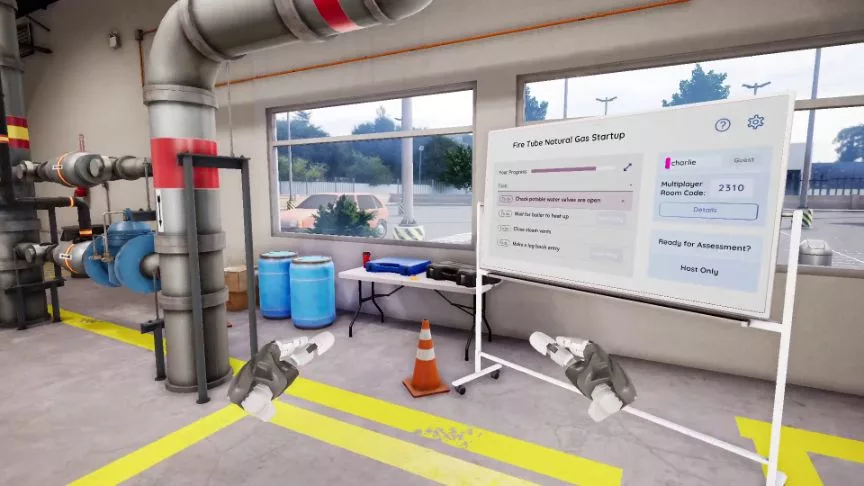
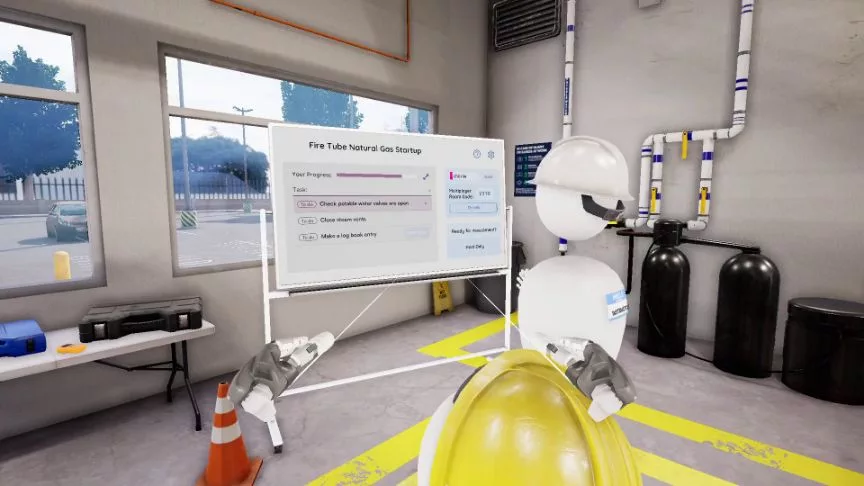


Multiple scenarios to choose from with the ability to randomize variables such as gas leaks and faulty equipment.


Students are walked through the processes with tips and with another VR instructor


Students are able to practice without guidance and get as many reps in to get it right without


Students can complete the tasks solo or with up to 5 other users also in the simulation. This allows them to complete tasks as a team and with an instructor present inside the simulation.


Students or teachers can join the simulation without a VR headset on.
Reduction in training time
Better retention of information
More engagement than traditional learning methods
Reduction in Accidents
Complete the form below, and a member of our team will be in touch to discuss further.
"*" indicates required fields